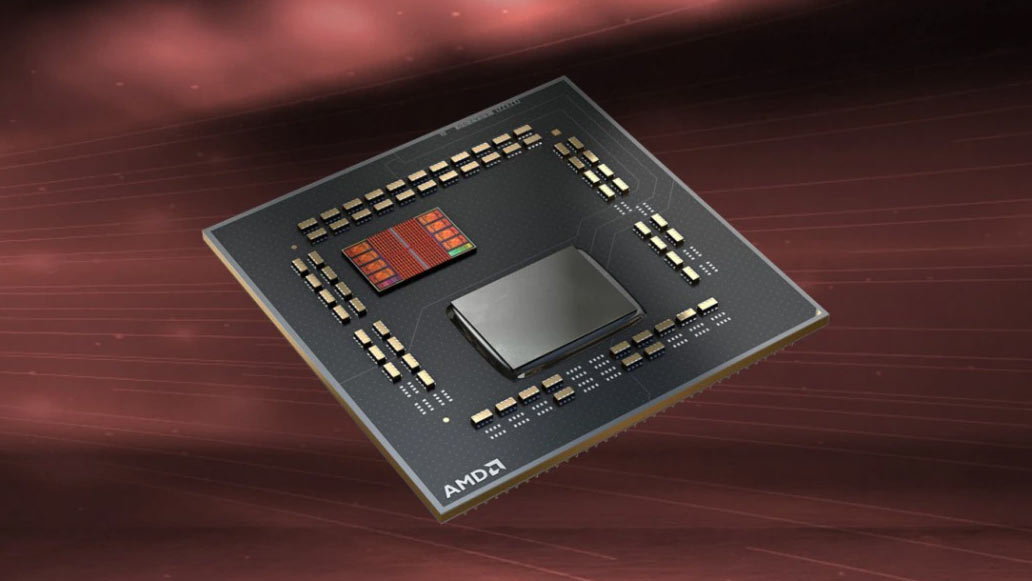Samsung lands orders for AMD's 4nm CPUs as chipmaker reportedly seeks to diversify production
AMD's Prometheus to be made both by TSMC and Samsung.

Samsung Foundry has landed an order from AMD to produce processors based on its Zen 5c microarchitecture using its 4nm-class process technology, reports DigiTimes, citing a report from South Korea-based Chosun Biz. If the information is accurate, the deal represents a major pivot in AMD's manufacturing strategy, as it means that it will split production of upcoming CPUs between TSMC and Samsung Foundry.
The report from DigiTimes claims that AMD is set to produce Zen 5c-based 'Prometheus' at two contract semiconductor chipmakers: Samsung Foundry and TSMC. The former is reportedly projected to make 'basic' versions of Prometheus on one of its 4nm-class process technologies, whereas the latter is expected to manufacture 'more advanced' versions of Prometheus on a 3nm-class production node.
Typically, AMD and other companies assign different codenames for products that use different process technologies and/or architecture configurations, so take the information about Prometheus being made on both 3nm and 4nm-class nodes with a huge grain of salt.
If we assume that there is no smoke without fire and AMD will produce something at Samsung Foundry (e.g., I/O dies), this means that AMD is going away from its usual tactics of only working with TSMC on advanced nodes. This move can be seen as an effort by AMD to reduce the risks associated with relying on a single supplier.
If the collaboration happens, it will certainly diversify AMD's chip production and will clearly strengthen Samsung Foundry's position in the advanced chipmaking business, as currently only TSMC produces advanced CPUs for AMD and Intel.
Samsung's role in producing these chips is a big deal for the company. Although it is still unclear whether Samsung Foundry has indeed landed a major order from AMD, there is already chatter in the industry that this partnership could lead to more opportunities for Samsung. If Samsung Foundry does well with Zen 5c-based chips, AMD might consider using Samsung's 3nm-class technologies for future products.
Get Tom's Hardware's best news and in-depth reviews, straight to your inbox.

Anton Shilov is a contributing writer at Tom’s Hardware. Over the past couple of decades, he has covered everything from CPUs and GPUs to supercomputers and from modern process technologies and latest fab tools to high-tech industry trends.
-
Amdlova Intel forcing on tsmc will put amd on samsung nodes... but my fear is the idle power...Reply
Only future will tell. -
TechLurker I think it's worth trying for AMD. It would allow them to get familiar with Samsung's processes and see what works and what doesn't, and Samsung themselves can improve their processes thanks to having a larger order they can run through their fabs and refine down the line. It also gives AMD a second supplier, and improves their working relationship with Samsung (already partnered on integrating RDNA IP in the mobile space and improving efficiencies there).Reply
Given the "basic" variant rumor, my guess is that Samsung-made CPUs will probably be targeted at the entry to basic level market, where efficiency isn't as important for mass corporate orders or cheap, personal "I just need internet and word processing" desktops. TSMC's CPUs will remain for the high-end professional and enthusiast market, as well as the mid-range where some efficiency is important. -
Co BIY I am interested in how much "Fab flexibility" is created by the improvements in design and layout tools / software (EDA).Reply
Does the software make it much easier to "switch" between processes and nodes ?
Some coverage of the major EDA players (Cadence, Synopsys, Ansys, and Siemens) and how they view the future would be interesting.
As far as the importance of AMD trying a Samsung node. Of course they are. Fab flexibility is one of their major structural advantages over at least one key competitor. If they were permanently wedded to TSMC then they would be in the same position as Intel in being tied to a single fab ecosystem. (Even Intel is actually diversified beyond their own production system) -
JamesJones44 If Samsung's newer nodes are at least close to par with TSMC's there are good reasons to look at Samsung. Apple typically pays a lot of money to gain first access to TSMCs leading edge nodes which means others like AMD, Nvidia, etc. have to get in line. AMD may not face that problem with Samsung at this juncture.Reply -
usertests Reply
AMD could make an APU or Zen 5c server chiplet on Samsung 4nm, clock it down a little, lower the prices relative to other products, and call it a day.Amdlova said:Intel forcing on tsmc will put amd on samsung nodes... but my fear is the idle power...
Only future will tell.